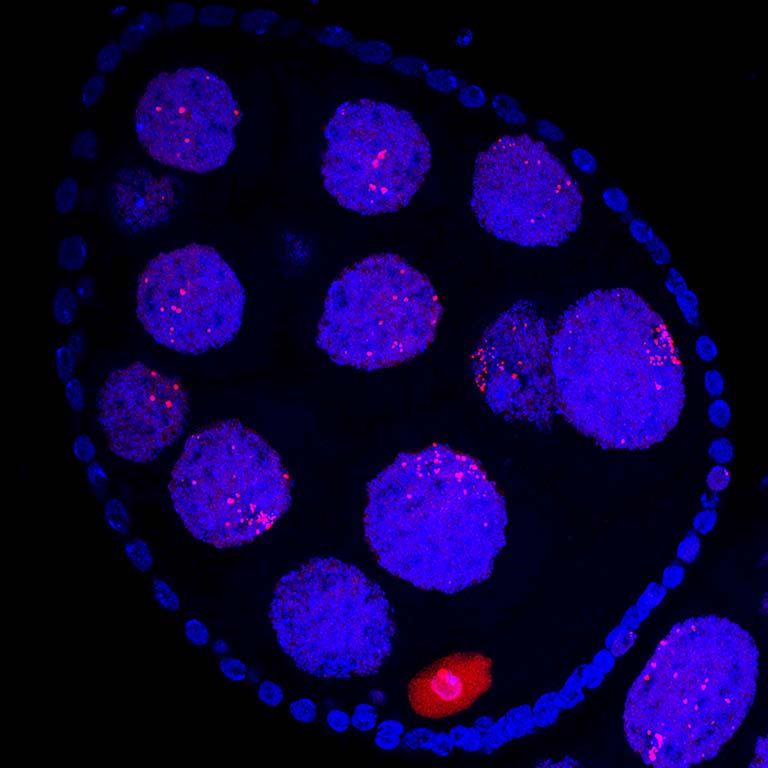The Calvi lab has published in the journal eLife the results of its investigation into the different functions of the p53 tumor suppressor in the model organism Drosophila (fruit fly). The Drosophila p53 gene is similar to human p53, which is the most frequently mutated gene in cancer.
The Calvi lab found that different forms of the Drosophila p53 protein have overlapping and distinct functions to respond to and fix DNA damage in oocytes, and that these functions are important for normal oogenesis and fertility. The findings of their study reveal striking parallels between flies and humans for p53 functions in oocyte quality control, with important relevance to understanding molecular mechanisms that ensure human female fertility.
Brian Calvi is a professor in the College of Arts and Sciences Department of Biology at Indiana University Bloomington.

 The College of Arts
The College of Arts